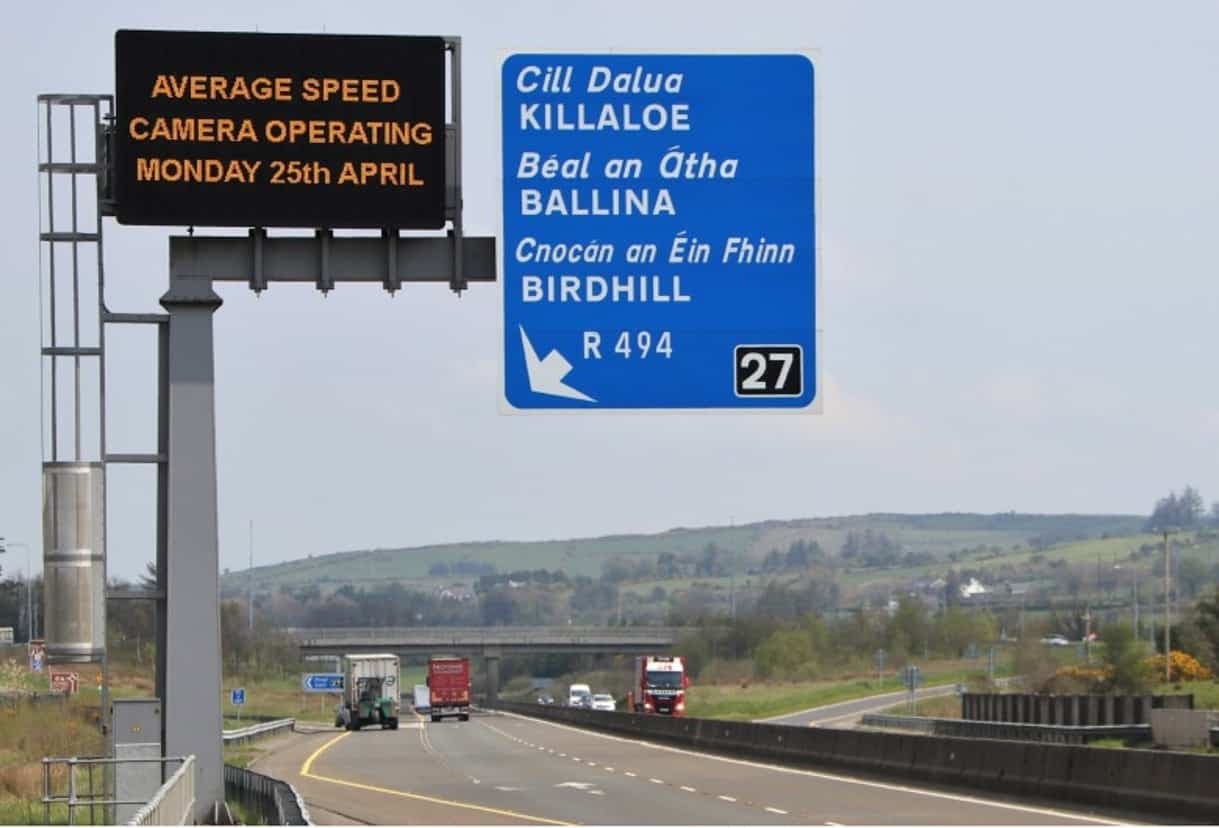Understanding Average Speed Cameras
Don’t Get Caught Out

There are five stretches of road in Ireland which are covered by average speed cameras and can be found at the Dublin Tunnel, the M7 motorway in Tipperary, the N3 in Cavan between Kilduff and Billis, the N5 in Mayo, between Lislackagh and Cuilmore, Swinford and on the N2 in Meath between Ballymagarvey and Cullen.
With the roll-out of further average speed cameras across the State, what does this mean for you as an everyday driver on this road? As long as you follow the rules of the road, nothing much will change for you - but it is still important to understand how these cameras work in order to make sure a speeding ticket isn’t on the horizon for you. We’ve compiled this handy guide to tell you everything you need to know about average speed cameras.
WHAT ARE AVERAGE SPEED CAMERAS?
Average speed cameras do just what they say on the tin: they calculate your average speed in a given distance to make sure you’re not breaking the speed limit. Rather than recording your speed in a specific moment, the cameras give a more well-rounded view of how fast drivers are going on certain roads, and help to manage the traffic flow.
HOW DO AVERAGE SPEED CAMERAS WORK?
Average speed cameras work by having two cameras set a certain distance away from each other. The cameras will track how long it takes you to get from one to the other, using this information to calculate your average speed on the road. In order to get an accurate average speed, the cameras need to be at least 200 meters apart and use a two-camera system.
WHAT DO AVERAGE SPEED CAMERAS LOOK LIKE?
Average speed cameras don’t look much different to normal ones. They’re normally yellow, tall and are fairly easy to spot if you keep your eyes peeled. The one dead giveaway for whether you’re in an average speed camera area or not is that there may be a road sign letting you know, so if you see this, make sure you take it slow in the area to ensure your average speed is below the limit.
WHERE WILL YOU FIND AVERAGE SPEED CAMERAS?
The latest average speed cameras were installed on 7 March 2025 on the N2 in Meath, between Ballymagarvey and Cullen. Earlier, in October 2024, cameras were also added on the N3 in Cavan, between Kilduff and Billis, and on the N5 in Mayo, between Lislackagh and Cuilmore, Swinford. Average speed cameras can also be found between junctions 26 and 27 on the M7, and have been active since April 2022. Average speed cameras were first installed at Dublin Port Tunnel in 2017.
HOW ACCURATE ARE AVERAGE SPEED CAMERAS?
Average speed cameras work by calculating exactly how long it took you to get from point A to point B, so their readings are fairly accurate. For example, if your average speed exceeds 120km/h on the M7, this is when the cameras will pick up the speed and issue a penalty to you. There is leeway, however, if you slow down your speed significantly between the first and second camera. As the cameras calculate average speed, this can bring the number down slightly. However, it’s not a realistic way to drive, and it is always a better idea to simply drive at or below the speed limit to make sure you don’t get a ticket.WILL I BE FINED IF FOUND SPEEDING BY AN AVERAGE SPEED CAMERA?
Yes. If caught speeding by an average speed camera, defined by your average speed exceeding 120km/h, you will be fined €160 and receive three penalty points on your license. You’ll have a total of 56 days to pay the fine before the court gets involved. The first 28 days will require you to pay the fixed amount (€160), and if you fail to pay in this time frame, you’ll have a further 28 days to pay the fixed amount plus 50% (€240). Once this time is up, you will receive a summons to attend court but have the option to pay an increased fine of €320. There is no way around this, so as long as you drive carefully, you won’t have to worry about these penalties.
Make sure you’re fully insured, too, to make sure you don’t get into even more hot water should you be caught speeding. Chill will compare the best policies on the market for you, so get a quick quote now to get started.
